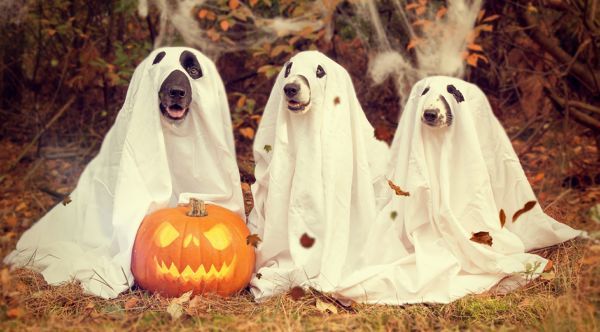Tema svolto sulle origini e tradizioni di Halloween
Alcune persone sono nate con il dono delle lingue, e dopo aver ascolto poche conversazioni riescono già a comprendere parole e rudimenti della sintassi. Altre invece sono completamente negate, e anche dopo aver sudato sui libri riescono solo a balbettare della frasi sconnesse. Se vi ritrovate nella seconda casistica allora siete nel posto giusto: ci pensiamo noi ad aiutarvi con l'inglese! Capita spesso che vengano affibbiati dei temi, e uno degli argomenti preferiti dai professori senza troppa fantasia è quello delle feste. E quale festa è più tipicamente inglese di Halloween? Se un vampiro o una strega per voi sono molto meno spaventosi di scrivere un tema in inglese su Halloween, non abbiate paura: noi di ScuolaZoo siamo qui per salvarvi dal vostro incubo più grande, svolgendo per voi una traccia sulle origini e le tradizioni di questa festa che si celebra il 31 ottobre.
[caption id="attachment_317903" align="alignnone" width="600"]

Foto: GoodFreePhotos[/caption]
Tema svolto sulla storia di Halloween: introduzione
Halloween is a festivity of many names: it is know also as Hallowe'en (that is a contraction of the phrase All Hallows' Evening), and among many other variants there is All Saints' Eve. One thing is sure, nonetheless: the date is always the same in the many countries Halloween is celebrated in, and it's the 31th of October. In the Christian tradition, the following date, the 1st of November, is the feast of All Hallows' Day. The origin of Halloween is found in the ancient Celtic myths related to the tradition of the harvest festival: we can easily say that the real roots of this holiday are found in pagan beliefs and in particular in the famous gaelic festival of Samhain (meaning “Summer's End”), that was later transformed in a Christian Holiday.
Tema sulle origini di Halloween: svolgimento
Being connected with rural and farmers' activities, Samhain was directly related to the end of the nicer season and the beginning of winter, seen as the “darker half of the year”, due to the scarsity of light during the day. In this moment of passage the barrier between the world of the living human beings and the Otherworld, inhabited by spirits, fairies and other mythological beings, became weaker and weaker: so, in order to ensure that the harvest and the livestock would survive to the frost and cold temperatures, there were offerings to the spirits.
Another aspect of the myth concerns the souls of the dead ones, that would visit the house of their relatives, or perfect strangers, seeking hospitality. Furthermore, poor people usually asked for food to their neighbors and in exchange they would promise to pray for their dead dear ones: this was known as the tradition of souling. But Halloween was not a night of gloom and terror, because the visit of the old ones to the living was seen as a joyous time: a place was prepared especially for them at the dinner table, and later there everyone would engage in games and gleeful drinking.
In modern days Halloween has become the perfect example of post-modernism appropriation of ancient cultures and religious traditions: the meaning of the 31th of October is of pure fun, and the perfect occasion for the entertainment industry to sell everything is judged monstrous, horrible and macabre, but in a carefree way.
During this festivity children, teenagers and adults usually attend parties in Halloween costumes (they can be legendary monsters or the latest sensations from tv shows), the streets and the houses are adorned with carved pumpkins with a candle inside (due to the story of Jack-o'-Lantern), and scary jokes are the rules. Movie theaters and tv broadcasters shows horror movies from the past or the latest ones.
In the United States, but also in other parts of the world, children can be seen in their costumes while going from house to house asking for candies and promising some nice, scary trick in the eventuality there would be no treats: this is the universally known as the tradition of trick-or-treating.
Traccia svolta su Halloween in inglese: conclusione
This is how usually Halloween is celebrated in the Western World, depending on the strenght of religion in a specific country: as a matter of fact it is not rare for religious authorities to deprecate Halloween as a symbol of consumerism or as a symbol of pagan resurgences.
Leggi anche:
Foto Copertina: PxHere
 Foto: GoodFreePhotos[/caption]
Foto: GoodFreePhotos[/caption]